Publications
Articles, publications, books, tools and multimedia features from the U.S. Institute of Peace provide the latest news, analysis, research findings, practitioner guides and reports, all related to the conflict zones and issues that are at the center of the Institute’s work to prevent and reduce violent conflict.
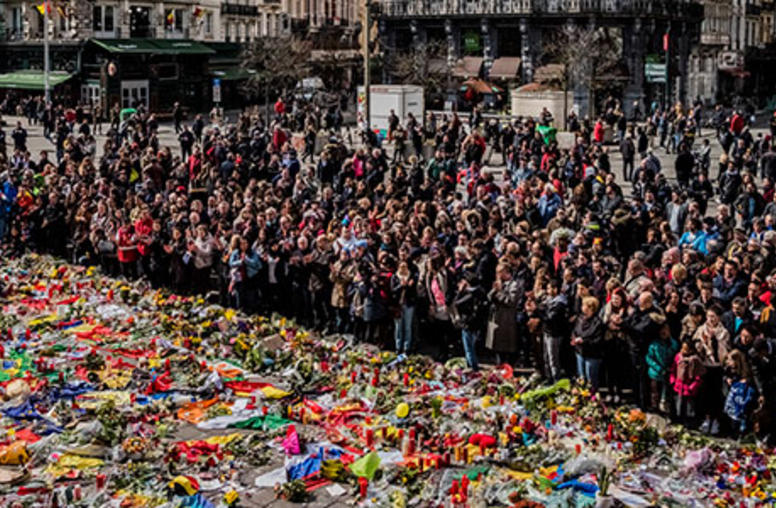
Brussels Attacks Highlight Connection to Regional Arcs of Crisis
My sympathy goes out to the survivors and families of those who died in the terrible attacks in a string of bombings over this last week -- from Brussels to Baghdad to Lahore. I was in Brussels on a business trip and was preparing to leave my hotel to catch a flight back to Washington when we got word of the explosions at the airport and the metro station there. The terror that was palpable last week in Brussels is sadly all too common in those five countries that top the list for violent extremist incidents and fatalities: Iraq, Pakistan, Afghanistan, Nigeria and Syria. And, we are increasingly seeing the outward ripples.
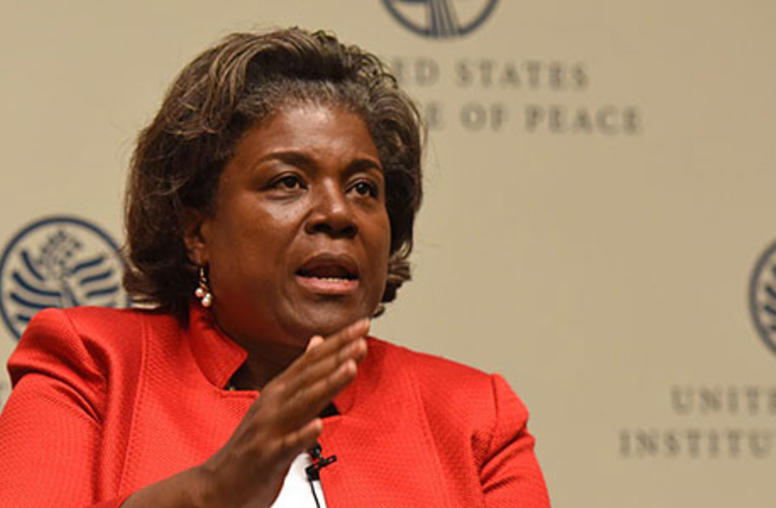
In Nigeria, U.S. Seeks a Way Home for Boko Haram Defectors
The senior U.S. diplomat on Africa urged Nigeria to look beyond military measures in its fight against Boko Haram, and to consider how it treats both the extremist group’s victims and its fighters who may be ready to defect.
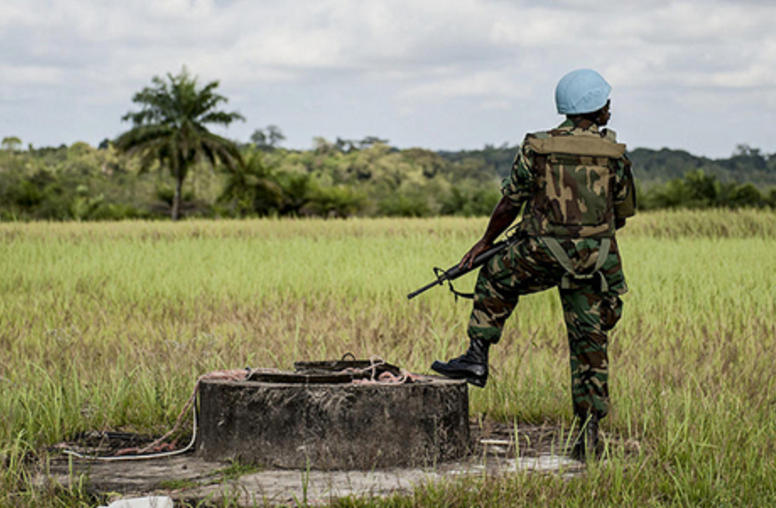
Africa Peacekeeping: Lessons from a Ghanaian Commander
For peacekeeping forces in Africa, the days of simply patrolling a ceasefire line or keeping local armies apart are over. Their assignments today increasingly include protecting civilians, confronting violent extremism and even engaging in what amounts to counter insurgency. These new burdens demand better preparation of troops headed for missions and clearer thinking by those who send them, Ghanaian Army Colonel Emanuel Kotia, a leading trainer of African peacekeepers, said at a U.S. Institute of Peace forum.
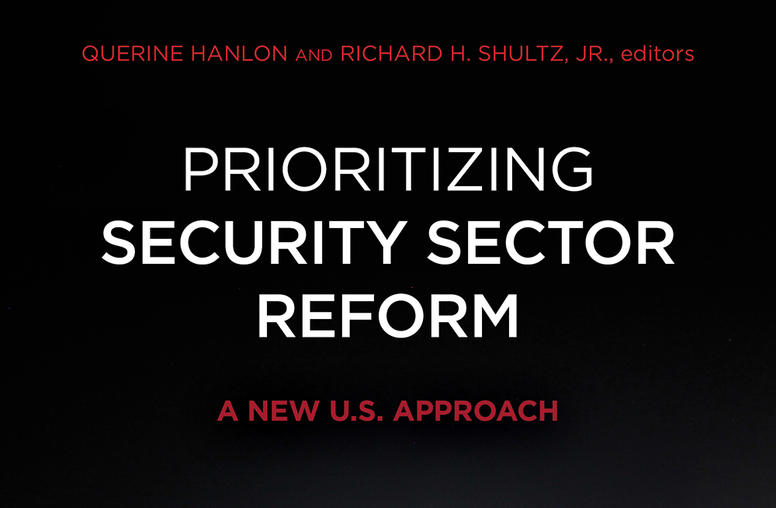
Prioritizing Security Sector Reform
Prioritizing Security Sector Reform: A New U.S. Approach argues that security sector reform (SSR) should be at the core of a new U.S. policy to strengthen the security sector capacity of countries where U.S. interests are at stake. As the United States withdraws from a more interventionist policy, it cannot wholly ignore the growing disorder in fragile environments around the globe. In place of large, boots-on-the-ground interventions relying on expensive train and equip programs with only fl...
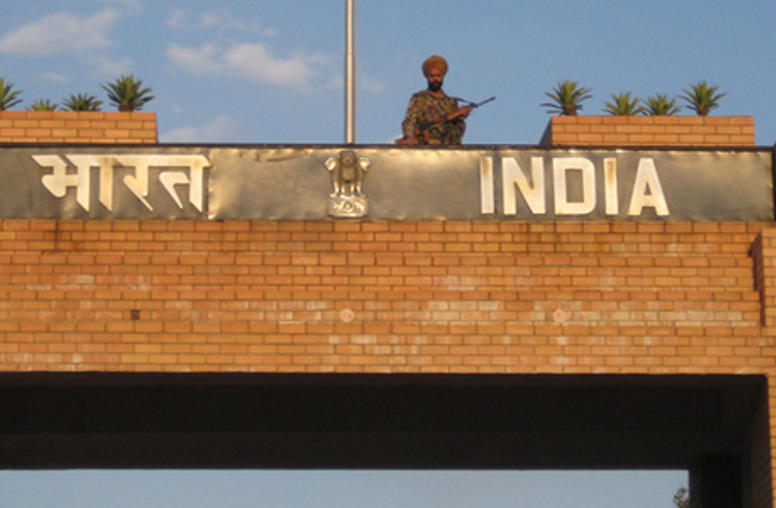
Is the United States Ready for the Next India-Pakistan Crisis?
When terrorists attacked India’s Pathankot air base near the Pakistani border in January, and India said the assailants had come from Pakistan, observers worldwide momentarily held their breaths, wondering whether this confrontation would spin into wider violence.
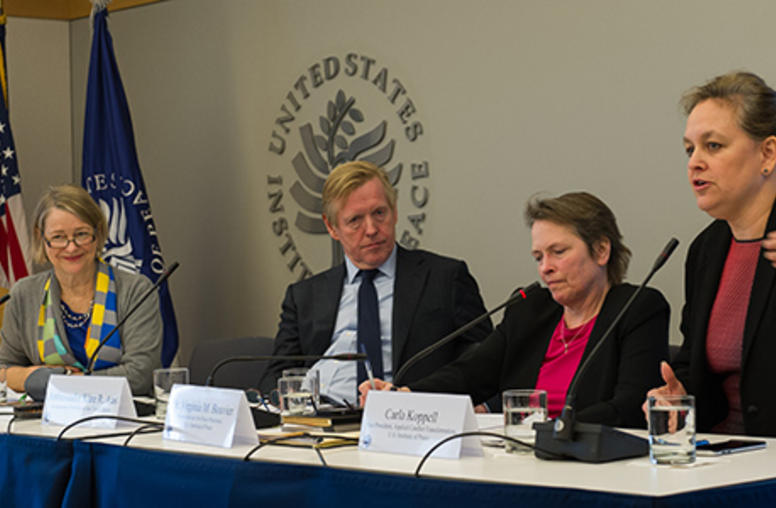
Women and Peace: A Special Role in Violent Conflict
In Liberia, women, excluded from talks to end the country’s civil war, besieged negotiators until they signed a deal. In Guatemala, where insurgents and the government each had a female delegate in talks, pressure from women put indigenous, gender and labor rights into an accord. In Northern Ireland, women placed the needs of victims and political prisoners on the agenda after winning a role in peace negotiations. Wherever there’s an effort to settle violent conflict, women’s involvement impr...
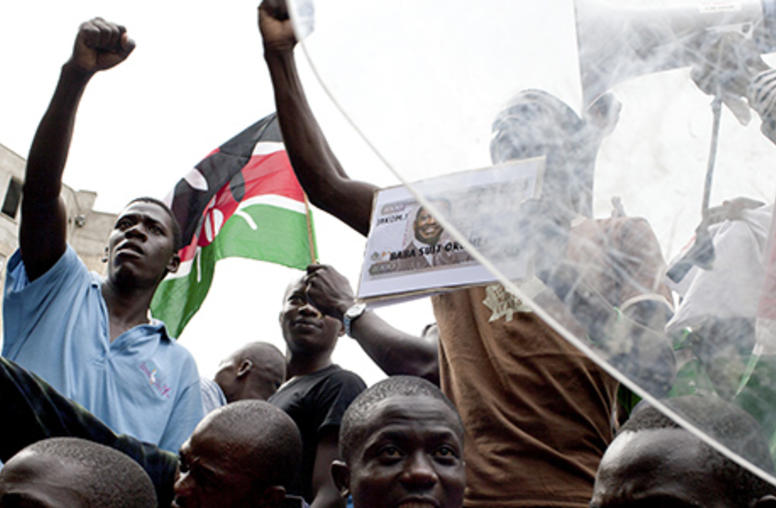
International Election Fraud Alerts May Spark Violence
Condemnations of election fraud by international monitors have become staples of global efforts to advance democratic practices and honor the will of a country’s citizens. But what if these denunciations actually make things worse? That was the finding from three years of research conducted by the winner of the U.S. Institute of Peace’s first Peace Dissertation Prize, Inken von Borzyskowski.
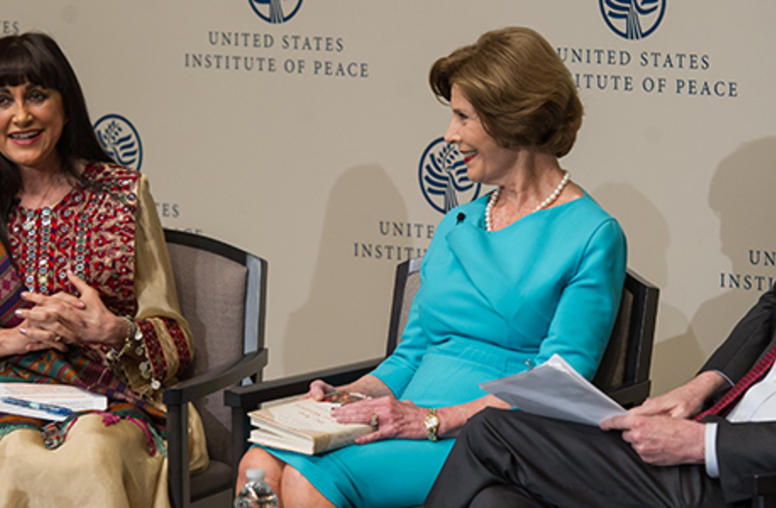
Laura Bush Urges Sustained Support for Afghan Women
Former first lady Laura Bush said the international community must continue to support the reconstruction of Afghanistan and progress for the country’s women through aid, investment and an ongoing presence of American troops. Speaking at the U.S. Institute of Peace on March 15, Bush said she remains hopeful for the country’s future, in part because of the spirit of Afghan women and the strides they have made in education, business and government.
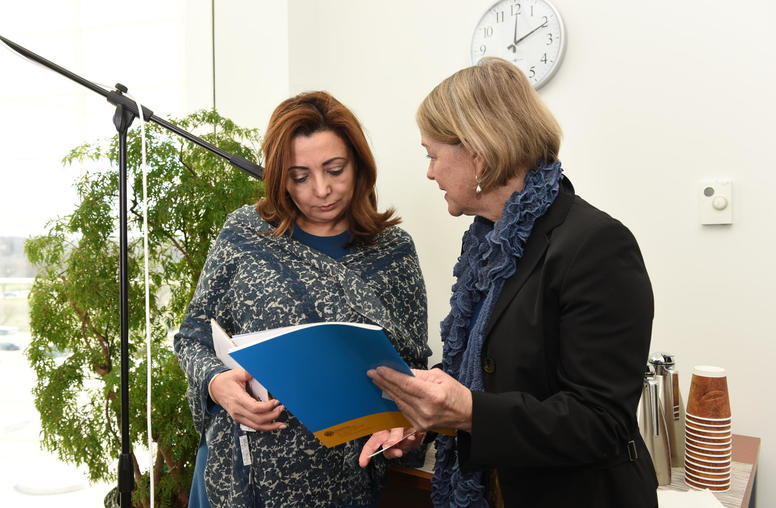
Group Leader in Nobel-Winning Quartet: Tunisia Needs Education Review for Jobs
The president of one of the four civil society organizations in the Nobel Prize-winning Tunisian National Dialogue Quartet said her country will need to make changes in its education system to reduce unemployment and adapt to an evolving economy. In a videotaped interview during a visit to USIP, Ouided Bouchamaoui talked about some of the many issues facing Tunisia during its still-precarious transition and about the status of women in society and the economy.
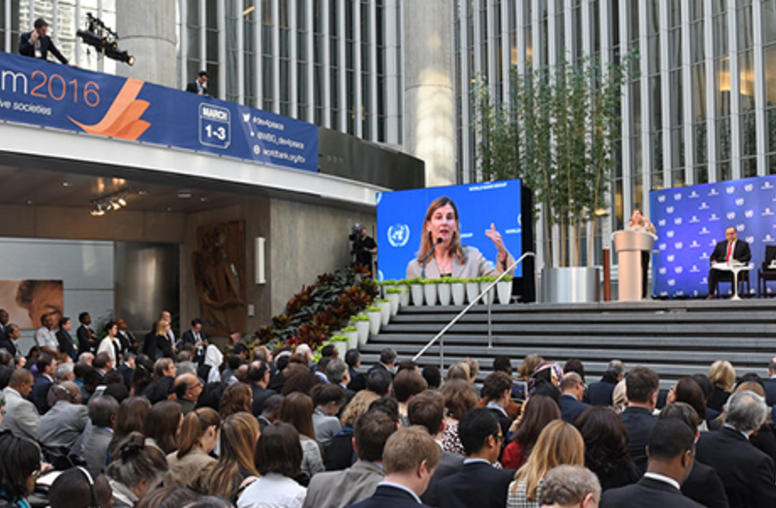
Fragile States Require Unified Response, Lindborg Says
U.S. Institute of Peace President Nancy Lindborg called for united action by humanitarian and economic development organizations, telling the opening session of the World Bank’s 2016 “Fragility Forum” that peace, development and security are inextricably linked in today’s world crises.